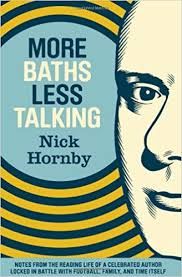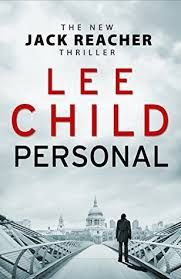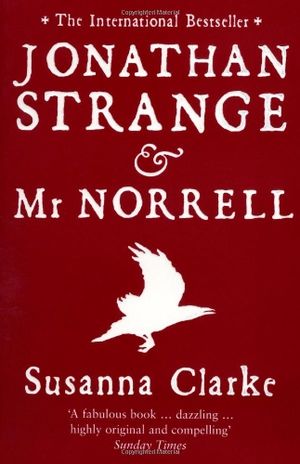 The greatest gig-perk I ever had was a bunch of years ago, when I performed at a co-sponsored Random House/Globe and Mail literary event at Hugh's Room. It was produced by Rheostatic and Bidiniband songwriter, author, and founder of current Toronto newspaper the West End Phoenix Dave Bidini, whose wikipedia page references "Bidini's annual 'Torn From the Pages' literary event, which gathers musicians and writers to create original works based on a single work of fiction, including Linden MacIntyre's Why Men Lie and Michael Crummey's Galore." I've done two of them now, the most recent for Nino Ricci's novel Sleep in 2015, and three years before that, for Linden Macintyre's Why Men Lie––which brings me back to my greatest-ever gig-perk:
The greatest gig-perk I ever had was a bunch of years ago, when I performed at a co-sponsored Random House/Globe and Mail literary event at Hugh's Room. It was produced by Rheostatic and Bidiniband songwriter, author, and founder of current Toronto newspaper the West End Phoenix Dave Bidini, whose wikipedia page references "Bidini's annual 'Torn From the Pages' literary event, which gathers musicians and writers to create original works based on a single work of fiction, including Linden MacIntyre's Why Men Lie and Michael Crummey's Galore." I've done two of them now, the most recent for Nino Ricci's novel Sleep in 2015, and three years before that, for Linden Macintyre's Why Men Lie––which brings me back to my greatest-ever gig-perk:
The pay, for each of us commissioned back in 2012 to write something inspired by Linden Macintyre's novel, was minimal––a $100 honorarium, plus dinner and drinks––but the other, mind-blowingly exciting recompense was, get this: $700 worth of books––any books, of our choosing, then available from Random House Canada's website! Are you kidding me? $700 worth of brand new books?? Which I get to choose at my leisure?? Whaaat? I was like a little kid: I looked at every possibility; I made lists of what I might pick. I took my time, savoured my selection––which in the end comprised about 40 spanking-new books, which were eventually delivered to my house, in three separate boxes, over two days––oh man, it was like Scholastic Book Fridays times a thousand! Opening those deliveries and unpacking my way through those boxes of crisp, beautiful, fresh-ink-smelling editions was the most ecstatic reward, so far, of my life in
And two of the books in that magical delivery were by Erik Larson.
One was Lethal Passage: The Story of a Gun, Larson's 1994 contribution to the gun-control debate, which I began back then but still haven't finished, and the other one, which I finally read last fall, was Thunderstruck.
Thunderstruck is the story of two men: Hawley Crippen, the unlikely British murderer whose strange, lurid (and touching) story, and subsequent pursuit and capture ignited the imagination of the world (as well as inspiring Alfred Hitchcock to make Rear Window) and Guglielmo Marconi, the obsessive Italian creator of the wireless. Thunderstruck tells the story of how, despite having never met, neither Crippen nor Marconi would be world-renowned today without the other, and Larson twines these true stories with a novelistic narrative which pulls us headlong into their parallel tales. So good.

The only other Erik Larson I've read is The Devil in the White City: Murder, Magic, and Madness at the Fair that Changed America––similar to Thunderstruck in that it braids the macabre story of H.H. Holmes, one of America's first serial killers, with that of Daniel H. Burnham, the architect in charge of the lavishly ambitious 1893 Chicago World's Fair. Again, historical-fiction told in un-put-downable, novelist style. I'd recommend both Thunderstruck and/or The Devil in the White City to anyone. Side fact: the movie rights to Devil were purchased by Leonardo de Caprio in 2010, with Scorcese apparently signed on to direct.
 Since before the time I knew of either of these books, I've been meaning to read Isacc's Storm (still on my list, dammit), Larson's account of the hurricane which devastated Galveston, Texas, in 1900, killing over 6,000 people. "Isaac" is Isaac Cline, the meteorologist who had all the information, but lacked the modern-day understanding of science necessary to grasp the magnitude of what was coming. Again, Larson interweaves the story of the hurricane itself with the story of the man. Yet another unread book, like Larson's In the Garden of Beasts, which I purchased many years ago in some airport or other, that I have to look forward to.
Since before the time I knew of either of these books, I've been meaning to read Isacc's Storm (still on my list, dammit), Larson's account of the hurricane which devastated Galveston, Texas, in 1900, killing over 6,000 people. "Isaac" is Isaac Cline, the meteorologist who had all the information, but lacked the modern-day understanding of science necessary to grasp the magnitude of what was coming. Again, Larson interweaves the story of the hurricane itself with the story of the man. Yet another unread book, like Larson's In the Garden of Beasts, which I purchased many years ago in some airport or other, that I have to look forward to.
Dave Bidini still curates a "Torn from the Pages" event each year, but the $700-worth-of-books is no longer on the table. When I performed at the Nino Ricci night in 2015, the reward (aside from the nominal paycheque) was a new song (in my case, "Sleep"), as well as kibitzing with other interesting artists, and getting to hang out two days in a row with Nino, whose company was a joy. But I'll tell you something: if I ever again get my hands on $700 I can spare, you can bet I'm ordering another three boxes of books to have delivered to my door. Best, and most Scholastic-ecstatic gig-perk, ever.

 The tagline on this book's cover is "Notes from the Reading Life of a Celebrated Author Locked in Battle with Football, Family, and Time Itself." It's a sexy, slender, perfectly manageable 135 pages, and Hornby's 4th collection of his very entertaining "Stuff I've Been Reading" column for The Believer, in which, each month, he chronicles the books he's read. Each column begins with a ledger which lists that month's BOOKS BOUGHT vs. BOOKS READ. Needless to say, Hornby's book-confessions will speak to anyone with a book problem. They'll especially tickle anyone who has decided, ahem, to write about the ins and outs of their personal reading life. This passage resonated in particular:
The tagline on this book's cover is "Notes from the Reading Life of a Celebrated Author Locked in Battle with Football, Family, and Time Itself." It's a sexy, slender, perfectly manageable 135 pages, and Hornby's 4th collection of his very entertaining "Stuff I've Been Reading" column for The Believer, in which, each month, he chronicles the books he's read. Each column begins with a ledger which lists that month's BOOKS BOUGHT vs. BOOKS READ. Needless to say, Hornby's book-confessions will speak to anyone with a book problem. They'll especially tickle anyone who has decided, ahem, to write about the ins and outs of their personal reading life. This passage resonated in particular: Last fall, I tackled this beautiful, compelling biography of legendary film critic Pauline Kael, which I've been carrying around since I bought the freshly-printed hardcover in 2011. Let me share this, from its Introduction:
Last fall, I tackled this beautiful, compelling biography of legendary film critic Pauline Kael, which I've been carrying around since I bought the freshly-printed hardcover in 2011. Let me share this, from its Introduction:

 As happens with the best books, I didn't know this one or its author even existed until I saw it on a friend's shelf. My friend, when I asked about it, spoke of Patrick Rothfuss in a "he's the real deal" tone of voice which made my book sense tingle. This wasn't the generic fantasy it might be mistaken for at first glance. Something was happening here.
As happens with the best books, I didn't know this one or its author even existed until I saw it on a friend's shelf. My friend, when I asked about it, spoke of Patrick Rothfuss in a "he's the real deal" tone of voice which made my book sense tingle. This wasn't the generic fantasy it might be mistaken for at first glance. Something was happening here. 
 My unread books really do taunt me and mock me from the shelves. They know my name. They hiss at me as I go by. The titles are my recriminations. They cause me to feel inadequate, exhausted, and overwhelmed.
My unread books really do taunt me and mock me from the shelves. They know my name. They hiss at me as I go by. The titles are my recriminations. They cause me to feel inadequate, exhausted, and overwhelmed.  5 of the 11 narrators (each story is told in intimate first-person) are women, and perhaps because the story which ends the book - the title track, as it were, "The Mountains Won't Remember Us" - is 72 pages (the other ten weighing in around 16-20 apiece), and perhaps because the final story is a woman's, and so powerful that it left me weeping and holding the book like it was a person in need of comfort - maybe that's why the presence of the women feel so strong through this collection.
5 of the 11 narrators (each story is told in intimate first-person) are women, and perhaps because the story which ends the book - the title track, as it were, "The Mountains Won't Remember Us" - is 72 pages (the other ten weighing in around 16-20 apiece), and perhaps because the final story is a woman's, and so powerful that it left me weeping and holding the book like it was a person in need of comfort - maybe that's why the presence of the women feel so strong through this collection. Sometimes you get a vision of what's ahead for you. And even if it's what you most want to do, you see all the work it is. It's like foreseeing an endless journey of climbing over logs and crossing creeks, looking for footholds in mud and swampland. And every little step and detail is real and has to be worked out. But it's what you are going to do, what you have been given to do. It will be your life to get through it. That's the way I seen this work. Every one of that thousand rocks, some weighing a ton I guessed, had to be dressed, had to be measured and cut out of the mountainside, and then joined to one another. And every rock would take hundreds, maybe thousands, of hammer and chisel licks, each lick leading to another, swing by swing, chip by chip, every rock different and yet cut to fit with the rest. Every rock has its own flavor, so to speak, its own grain and hardness. No two rocks are exactly alike, but they have to be put togther, supporting each other, locked into place. It was like I was behind a mountain of hammer blows, of chips and dust, and the only way out was through them. It was my life's work to get through them. And when I got through them my life would be over. It's like everybody has to earn their own death. We all want to reach the peacefulness and rest of death, but we have to work our way through a million little jobs to get there, and everybody has to do it in their own way.
Sometimes you get a vision of what's ahead for you. And even if it's what you most want to do, you see all the work it is. It's like foreseeing an endless journey of climbing over logs and crossing creeks, looking for footholds in mud and swampland. And every little step and detail is real and has to be worked out. But it's what you are going to do, what you have been given to do. It will be your life to get through it. That's the way I seen this work. Every one of that thousand rocks, some weighing a ton I guessed, had to be dressed, had to be measured and cut out of the mountainside, and then joined to one another. And every rock would take hundreds, maybe thousands, of hammer and chisel licks, each lick leading to another, swing by swing, chip by chip, every rock different and yet cut to fit with the rest. Every rock has its own flavor, so to speak, its own grain and hardness. No two rocks are exactly alike, but they have to be put togther, supporting each other, locked into place. It was like I was behind a mountain of hammer blows, of chips and dust, and the only way out was through them. It was my life's work to get through them. And when I got through them my life would be over. It's like everybody has to earn their own death. We all want to reach the peacefulness and rest of death, but we have to work our way through a million little jobs to get there, and everybody has to do it in their own way. My affair with this book began many Christmases ago. Well, I guess before that. It had been out a couple of years; I'd heard about it, picked it up; thumbed its fresh Bloomsbury pages under my nose. I'm pretty sure I bought my copy at Gatwick airport before leaving England the last time - a consolation purchase after being served my ten-year ban in 2007. I don't trust my memory much (more on that in a moment), but that feels accurate.
My affair with this book began many Christmases ago. Well, I guess before that. It had been out a couple of years; I'd heard about it, picked it up; thumbed its fresh Bloomsbury pages under my nose. I'm pretty sure I bought my copy at Gatwick airport before leaving England the last time - a consolation purchase after being served my ten-year ban in 2007. I don't trust my memory much (more on that in a moment), but that feels accurate.

